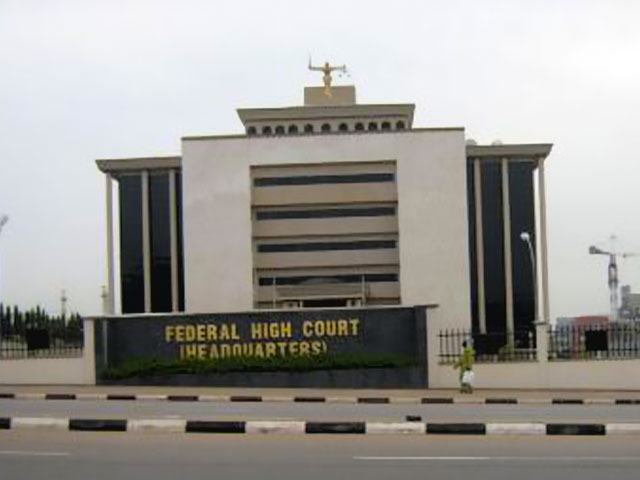The court has directed the Minister to clarify the utilization of N535 million allocated for school feeding during the lockdown

In a recent ruling, the Federal High Court in Abuja has instructed Dr. Betta Edu, the Minister of Humanitarian Affairs, Disaster Management, and Social Development, to disclose the specifics of how the amount of N535.8 million was utilized for providing meals to school children during the COVID-19 lockdown.
Justice Nkeonye Maha, in delivering the judgment, mandated the minister and the ministry to provide a civil society group with certain details in accordance with Section 25(1) of the Freedom of Information (FOI) Act, 2011.
This decision emphasizes transparency and accountability in the expenditure of public funds, particularly in programs related to humanitarian and social development initiatives.
Justice Maha has determined that the Minister’s non-response to the civil society group’s letter dated August 6, 2020, and the absence of reasons for the refusal to address the request, as outlined in the Freedom of Information (FOI) Act, violated Section 4(a) and (b) of the legislation.
Considering the objectives of the FOI Act 2011 and the issues at hand, the court has issued an order compelling the 1st and 2nd defendants, in line with Section 25(1) of the FOI Act, to provide the plaintiff with the information sought in Reliefs 3(a), (b), (c), (d).
Furthermore, the judge has directed the minister to adhere to the court’s orders within 21 days upon receipt. However, she declined to grant “Reliefs 3(e), (f), and (g) of the plaintiff.” This legal decision underscores the importance of compliance with transparency measures outlined in the FOI Act.
The Incorporated Trustees of Kingdom Human Rights Foundation International initiated a legal action, identified as FHC/ABJ/CS/1162/2020, against the then Minister, Hajia Sadiya Umar-Farouq, and her ministry.
This legal action followed their purported refusal to respond to information requests. Umar-Farouq served as the minister in the Muhammadu Buhari-led government.
The group, suspecting irregularities, contended that an independent investigation and available information pointed to the alleged fraudulent nature of the purportedly modified and implemented school feeding program during the COVID-19 lockdown.
They asserted that this initiative was, in reality, a deceptive scheme designed to misappropriate public funds. The lawsuit aims to address concerns surrounding transparency and accountability in the administration of public resources.
It was noted that this development contradicted the statement made by Umar-Farouq during the COVID-19 taskforce briefing on August 3, 2020. Consequently, the group filed an originating summons, suing the minister, the ministry, and the Presidential Taskforce on COVID-19 as the 1st, 2nd, and 3rd defendants, respectively.
The Secretary to the Government of the Federation (SGF) and the Independent Corrupt Practices and Other Related Offences Commission (ICPC) were also included in the lawsuit as the 4th and 5th defendants.
In the suit, the group sought an order of mandamus compelling the 1st defendant (minister) to promptly release and provide all the information and documents outlined in its application letter.
This legal action underscores the group’s pursuit of transparency and access to information in relation to the alleged discrepancies in the school feeding program.
“a. Comprehensive details, substantiated by documentary evidence, outlining the expenditure of N523,273,800 on the school feeding program during the COVID-19 lockdown in three states.
This expenditure was made in adherence to a presidential directive, as revealed by the 1st defendant during the Presidential Taskforce on Covid-19 briefing held on Monday, August 3, 2020, in Abuja.
“b. Elaborate details, supported by documentary evidence, elucidating the distribution process of the aforementioned N523,273,800 to the 124,589 households mentioned by the 1st defendant. According to her statement, these households were recipients of take-home rations valued at N4,200.
The breakdown includes 29,609 households in the FCT, 37,589 households in Lagos, and 60,391 households in Ogun, totaling 124,589 households impacted between May 14 and July 6. If indeed 124,589 households received take-home rations valued at N4,200 each, the cumulative amount would be N523,273,800.
“c. Presentation of facts, supported by documentary evidence, clarifying whether the 124,589 households, as claimed by the 1st defendant, received the take-home rations in the form of cash or if they were provided with food items.”
This comprehensive request seeks detailed information and evidence to address concerns regarding the allocation and distribution of funds for the school feeding program during the specified period.
“d. In the event that the 124,589 households, as stated by the 1st defendant, received take-home rations valued at N4,200 in cash, factual evidence, accompanied by documentary proof, is sought.
This includes state-by-state photographs capturing the individuals involved in the distribution process, both those distributing and those receiving. The evidence should clarify whether the households were provided with N4,200 in cash or food items valued at N4,200.
“e. If the 1st defendant contends that the 124,589 households received N4,200 via bank transfer, the request demands evidence confirming that the N4,200 was deposited into the respective bank accounts of these households.
This should include the disclosure of the bank account numbers belonging to the 124,589 households who, according to the 1st defendant, received take-home rations valued at N4,200 each.
“f. The contact numbers of the 124,589 households, as claimed by the 1st defendant, who purportedly received take-home rations valued at N4,200, or alternatively, the contact numbers of their household heads.
“g. State-by-state addresses of the 124,589 households that the 1st defendant asserted received take-home rations valued at N4,200.
This information is essential for the plaintiff to promptly verify whether these households indeed received the specified items.”
This detailed inquiry aims to obtain conclusive evidence and information to validate or refute the statements made regarding the distribution of funds for the school feeding program.
The group initiated the lawsuit in the broader public interest, aiming to uphold the rule of law, ensure accountability, transparency, and foster constitutional democracy and good governance.
In response, the minister and the ministry argued in their counter-affidavit that they did not refuse to provide the requested information, asserting that it had already been disclosed in their response. They contended that details such as addresses and phone numbers of beneficiaries fell under personal information exempted by Section 14 of the FOI Act.
Additionally, they clarified that the correct total sum was N535,873,800 for 127,789 households, not N523,273,800 for 124,589 households as alleged by the group. The minister and the ministry affirmed that they distributed food items rather than cash.
Justice Maha, in her judgment, removed the names of the 3rd, 4th, and 5th defendants from the suit, citing the plaintiff’s failure to establish a cause of action against them. While she agreed that the disclosure of personal details, including addresses and phone numbers, was exempted, she refused to grant the request for bank account numbers, as no cash was disbursed.
The judge acknowledged that the defendants did not provide evidence on how the food items worth N535,873,800 were distributed to beneficiaries.
Noting the lack of concrete proof, she granted some of the reliefs sought by the group (Reliefs a, b, c, and d) but declined others (Reliefs e, f, and g). This decision underscores the importance of substantiated evidence in legal proceedings and the court’s commitment to relying on factual information.
